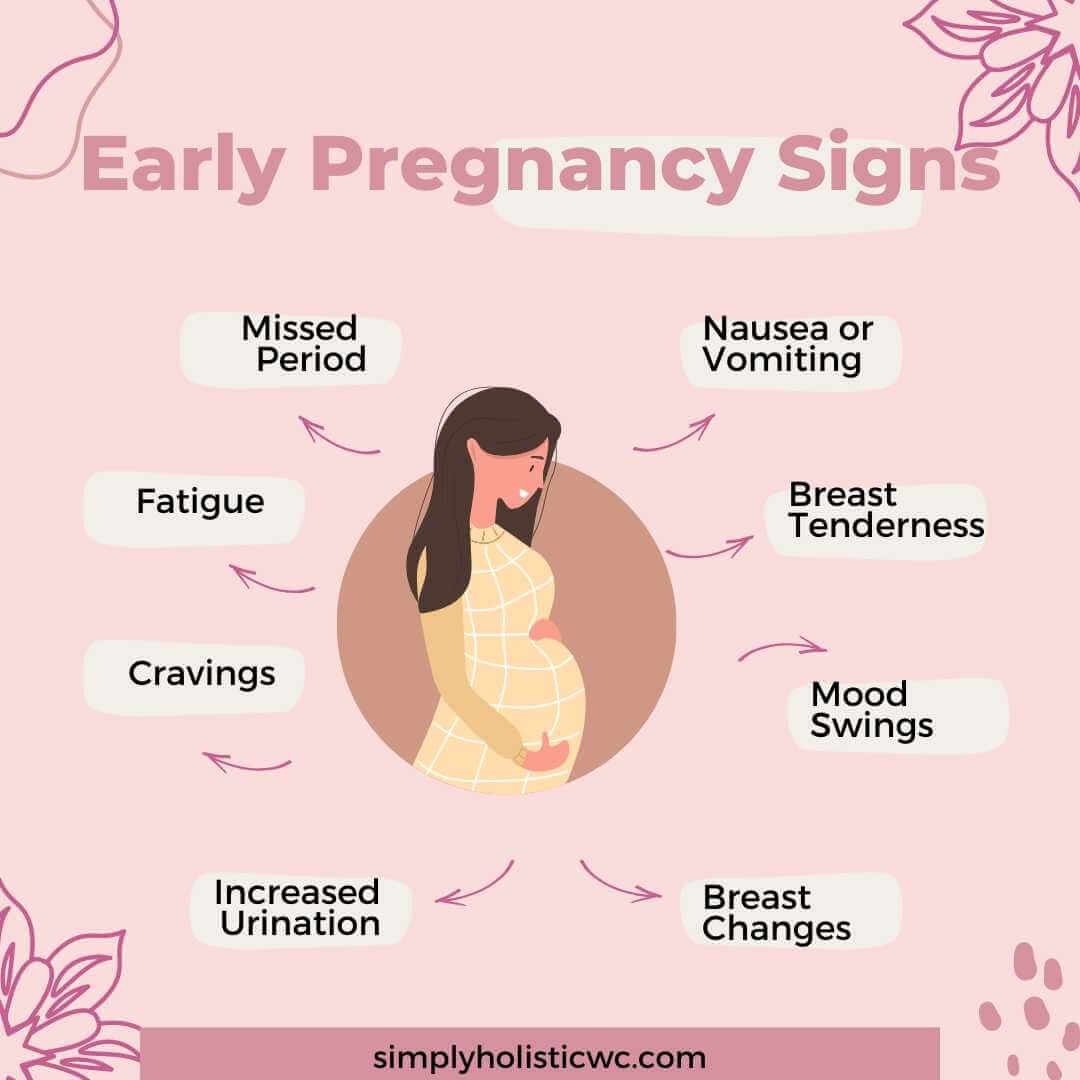What Happens After Ovulation | How Long Until Pregnancy?
As a woman trying to get pregnant, when you have ovulated, the waiting begins.
You know something important has just happened in your body and that you are officially on the path to pregnancy - but then what?
How long does it take for conception to occur after ovulation?
In this blog post, we'll explore the timeline of events after ovulation so you can better understand how fertility works and an approximate timeline for when - or if - pregnancy occurs.
This post may contain affiliate links for which I may earn a small commission. This means shopping through these links supports my blog at no cost to you. Please read our full disclosure policy. Thank you!
What is Ovulation?
Let's talk about ovulation and what it means for your menstrual cycle.
Ovulation is the process by which an egg is released from the ovary, making it available for fertilization.
It typically occurs about 14 days after the start of your menstrual cycle (although this can vary from person to person).
Here's a quick breakdown of the four stages of the menstrual cycle:
Menstrual phase: This is when bleeding occurs as the uterine lining sheds. This typically lasts about 3-7 days.
Follicular phase: During this phase, the body prepares for ovulation by producing follicle-stimulating hormone (FSH).
This stimulates the growth of several follicles in the ovaries, each of which contains an immature egg.
Ovulation: This is when one mature egg is released from the ovary and travels down the fallopian tube, where it may be fertilized by a single sperm cell.
After the release of an egg, the egg has a chance to be fertilized. A fertilized egg will implant in the uterus, while an unfertilized egg is shed as part of a woman's period.
Luteal phase: After ovulation, the follicle that contains the egg transforms into the corpus luteum, which produces mainly progesterone and some estrogen. This is when progesterone levels start to increase.
The hormone progesterone helps thicken the lining of your uterus in preparation for pregnancy. If the egg isn't fertilized, the corpus luteum breaks down, and your next period begins all over again.
↓PIN IT FOR LATER!↓
What is Your Fertile Window?
Alright, let's talk about your fertility window! If you're trying to conceive, this is the magical time when you're most likely to get pregnant.
Essentially, your fertile window is the few days leading up to ovulation and the day of ovulation itself.
Now, the thing is, every woman is different, and her fertile window can vary depending on factors like cycle length, age, and health.
But as a general rule of thumb, your fertile window is around days 10-14 of your menstrual cycle (with day 1 being the first day of your period). This includes the five days before ovulation and the day of ovulation. For those with a 28-day cycle, ovulation typically falls around day 14.
But it's important to note that everyone's cycle length varies, so tracking your cycle is important.
So, how can you tell when you're ovulating and in your fertile window?
Well, there are a few different ways to track it. You can use ovulation predictor kits, which detect the LH surge that happens right before ovulation. Or, you can track your basal body temperature (BBT), which rises slightly after ovulation.
Some women also track changes in cervical mucus, use ovulation tests, or use fertility apps to help them predict their fertile window.
For a detailed guide on tracking ovulation, check out my blog post on the best ways to track ovulation for a successful conception journey!
Why is knowing your fertile window important?
Well, if you're trying to conceive, timing is everything! Knowing your fertile window lets you know the best time to have intercourse.
Having sex during your fertile window gives you the best chance of getting pregnant.
And even if you're not trying to conceive, knowing your fertile window can help you avoid unwanted pregnancy by avoiding sexual intercourse during that time.
So, there you have it - your fertile window in a nutshell!
You May Also Enjoy:
10 Natural Ways to Boost Sperm Count for Male Fertility
How to Improve Egg Quality Naturally for Pregnancy & IVF
How Long After Ovulation Is an Egg Viable?
Okay, let's talk about how long an egg is viable after ovulation.
The egg has a lifespan of around 12-24 hours past ovulation. That means you have a pretty narrow window for baby-making!
So, if you're trying to conceive, it's best to have sex a few days before and on the day of ovulation.
That way, plenty of those speedy little swimmers will be waiting around when that egg makes its grand appearance.
How Long Can Sperm Survive in a Woman's Body?
Let's get down to the nitty-gritty of baby-making: how long can sperm survive in a woman's body?
Believe it or not, those little swimmers can hang around for quite a while - up to five whole days in the female reproductive tract, in fact!
That means if you have sex a few days before ovulation (when that egg is just waiting to be fertilized), there's a chance those sperm will still be alive and kicking when the egg makes its grand appearance.
But wait, there's more! The survival time of sperm can vary depending on a few different factors.
For example, the quality of the sperm and the conditions of the woman's reproductive tract can all impact how long they survive. So while five days is the general rule of thumb, it's not guaranteed.
So what does all this mean for you?
Well, if you're trying to conceive, it's best to have sex a few times leading up to ovulation and on the day of ovulation itself. This way, you boost your chances of having plenty of live sperm ready and waiting when that egg drops.
And if you're not trying to conceive? Well, now you know just how long those little guys can survive in your body.
So maybe think twice before having unprotected sex, even if you think you're "safe" outside of your fertile window.
You May Also Enjoy:
Boost Fertility Naturally: Supplements to Support Ovulation
Hold on, before you continue scrolling!
Exciting news for anyone on a fertility journey: I've created the Nourish, Flourish, Thrive: Holistic Wellness Challenge just for you.
This FREE download is your go-to guide for naturally balancing those tricky hormones.
Crafted from my personal battles with fertility, hormone imbalances, endometriosis, and my holistic health coach wisdom, it's packed with everything to kick your health up a notch in just a few weeks.
Pretty exciting, right?
From better sleep to top-notch nutrition, I've got it all.
Ready to revamp your wellness game?
Download the Nourish, Flourish, Thrive: Holistic Wellness Challenge below.
Let's start flourishing together!
↓GET YOUR FREE DOWNLOAD↓
How Many Days After Ovulation Can You Get Pregnant?
Let's talk about how many days after ovulation you can get pregnant. Now, I know we all want a straightforward answer, but unfortunately, it's not that simple!
It depends on a lot of factors, like the quality of the sperm and egg, the woman's age and health, and more.
But according to a study published in the New England Journal of Medicine, the chances of pregnancy were highest when sex occurred within five days before ovulation, with a whopping 33% chance of conception on the exact day of ovulation!
The chances of pregnancy dropped to 10% five days before ovulation. So, if you're trying to conceive, it's best to have sex leading up to and on the day of ovulation for the best chances of success.
The study also showed a 12% chance of conception on either the 7th day before or the day after ovulation. So don't stress too much if you miss the window - you still have a good chance of getting pregnant.
Now, keep in mind that these are just statistical averages, and every woman's body is different.
Some women may have a shorter or longer fertile window. And other factors like stress, illness, medical conditions (such as polycystic ovary syndrome), or medications can impact fertility.
So, while it's helpful to understand the general timeline of when you're most likely to get pregnant, it's important to remember that getting pregnant depends on a lot of factors.
And hey, stranger things have happened - some women have gotten pregnant even when they thought it was impossible!
↓PIN IT FOR LATER!↓
What Are Some Early Pregnancy Signs?
If you're wondering whether you might be pregnant, keep an eye out for some of these early pregnancy symptoms.
Now, keep in mind that some of these could also be signs that your period is coming.
Missed period
Nausea or vomiting
Fatigue
Breast tenderness
Cravings or aversions to certain foods
Mood swings
Increased urination
Now, it's important to note that everyone's body is different, and some women may experience different (or no) symptoms at all.
But if you're experiencing a few of these, it might be time to take a pregnancy test and find out for sure.
If you're wondering when you can take a pregnancy test, the answer is: it depends.
Why does it depend, you ask?
Well, it all comes down to the hormone levels of human chorionic gonadotropin - or hCG for short (the pregnancy hormone). The placenta produces this hormone after a fertilized egg implants in the uterus.
So, when can you expect to have enough hCG in your system to trigger a positive pregnancy test?
Well, it varies from woman to woman. But in general, most home pregnancy tests can detect hCG levels in urine around a missed period (usually about two weeks after ovulation).
A blood test may be able to detect a positive result even earlier, but it is not always reliable.
If you have irregular menstrual cycles or are uncertain when your last menstrual cycle was, waiting a few more days after a missed period before taking the test may be beneficial.
This will give your body more time to produce the hCG hormone and increase your chances of getting an accurate result.
Conclusion
We've covered a lot of ground when it comes to fertility and pregnancy - from tracking ovulation to early pregnancy signs.
Whether you're trying to conceive or just curious about your body, understanding your cycles and symptoms is an important part of taking care of yourself.
And hey, don't forget to have fun along the way!
Keep charting those cycles and listening to your body. You've got this!
Say goodbye to period-tracking headaches!
Download our free printable period tracker and keep track of everything from menstrual cycles to ovulation dates and fertility indicators.
Whether you're trying to conceive or just want to stay in control of your body, our tracker will make it effortless!






